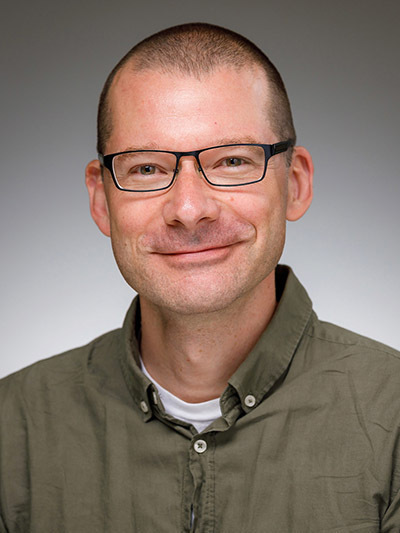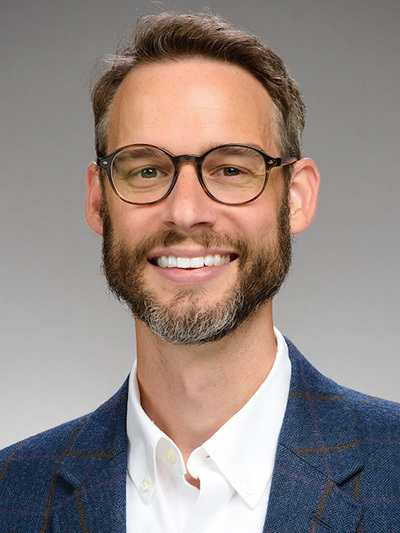 Campuswindow
Campuswindow
Three faculty members in the College of Arts & Letters have won National Endowment for the Humanities (NEH) fellowships, extending the University of Notre Dame’s record success with the federal agency committed to supporting original research and scholarship.
Shane Duarte, an associate professor of the practice in the Department of Philosophy; Mary Celeste Kearney, an associate professor of film, television, and theatre; and Stephen Ogden, the Tracey Family Associate Professor of Philosophy, are among the 82 scholars to be awarded the competitive fellowships, which were announced Tuesday.
Since 2000, Notre Dame faculty have won more NEH fellowships than any other university in the country.
Additionally, a pair of A&L scholars — Katie Bugyis, the Rev. John A. O'Brien Associate Professor in the Program of Liberal Studies, and Margot Fassler, the Keough-Hesburgh Professor of Music History and Liturgy Emerita — have won a significant, three-year NEH Humanities Initiatives at Colleges and Universities grant to develop a website and to teach medieval liturgy.
“I am delighted and proud that the NEH has again supported our faculty members’ relevant and interesting projects,” said Sarah Mustillo, the I.A. O’Shaughnessy Dean of the College of Arts & Letters. “These four awards highlight the quality of diverse academic research conducted by our experts in multiple fields as well as the excellent support provided by the Institute for Scholarship in the Liberal Arts throughout the application process.”
A first-ever translation
Duarte will spend his fellowship editing, translating, and annotating Francisco Suárez’s “Metaphysical Disputation 30” (DM 30), which is a core part of The Metaphysical Disputations (DM), published in Latin in 1597.
Suárez, a philosopher and theologian, composed DM to provide a grounding in metaphysics — the study of reality and existence — that’s needed to study revelation-based theology.

DM 30, Duarte said, is devoted to the nature of God insofar as He can be known by reason unaided by revelation. It’s interesting, in part, Duarte said, because Suárez was a professor of theology and most of his works were informed by revelation.
Duarte will be the first person to translate the treatise. The volume he plans to publish will include a substantial introduction, and in his translation, he'll strive for a balance of readability and fidelity to the original text.
“Translation work is often treated as secondary, or of lesser value, but at the same time everyone working in the history of philosophy wishes that more texts were translated into English,” he said.
The translation could provide valuable insights to people who work on better-known philosophers like Rene Descartes, Duarte said. Suárez was an important thinker whose views influenced even philosophers who saw themselves as breaking from the Aristotelian tradition of which he was a part.
While Duarte’s prior work focused on later thinkers, he became convinced that a greater familiarity with Suárez's work would provide a better understanding of 17th-century European philosophy, as well as of life today.
“I tend to think contemporary philosophy benefits from an understanding of its own history, though not everyone in the field agrees,” he said. “For society? Well, I think intellectual traditions inform our understanding of the present, though again, not everyone agrees.”
When Duarte learned he had won an NEH fellowship, his initial reaction was disbelief.
“For someone like me,” he said, “who is neither tenured nor on the tenure track, winning an award like this is tremendously validating.”
A novel interpretation of a classical theory
Ogden, whose research focuses on classical Islamic philosophy, will write the first book specifically about 11th-century Muslim philosopher Avicenna’s theory of intellect.
Avicenna, who was also a physician, theorized that there were two types of intellect — the human intellect and the active intellect. Avicenna’s theory posited that active intellect was a single, eternal intellect ultimately responsible for all human understanding and for the major metaphysical components of the Earth.

“Oftentimes when you explain it to nonexperts, they say, ‘That sounds like God,’” Ogden said. “It’s similar to God, but in Avicenna’s system, it’s a lower, semi-divine substance or intellect. It’s an intermediary between God and humanity.”
In his book — tentatively titled “Avicenna on Intellect” — Ogden will defend his novel interpretation of Avicenna’s theory as well as historically contextualize the theory with respect to Avicenna’s ancient predecessors and to later critiques.
The book will be a fitting companion piece to Ogden’s 2022 book, Averroes on Intellect: From Aristotelian Origins to Aquinas's Critique, which recently won the Journal of the History of Philosophy Book Prize.
Avicenna and Averroes, Ogden said, had two of the most important theories on intellect in classical Islamic philosophy, and they heavily influenced later Islamic, Christian, and Jewish philosophical traditions.
Evaluating the philosophical and historical reasons that Avicenna and others held their views continues to be important, Ogden said, because it helps modern readers consider their own preconceptions and biases.
“I think there's something valuable — I emphasize this with my students — in reading something that’s a thousand years old, 2,000 years old, or older,” he said. “A lot of things seem perfectly natural to our minds, given where we stand in history, but if read by an outsider a thousand years from now, they might not seem that obvious. We’ve gained much more empirical data, but philosophers and neuroscientists are still debating and exploring the nature of the human mind.”
Originally published by at al.nd.edu on January 10, 2024.